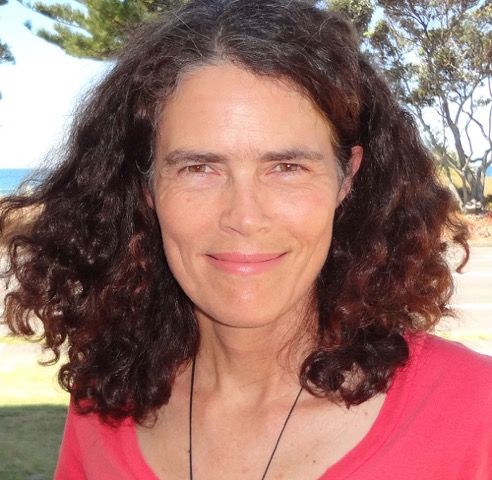Articles in this series were supported by a grant from the Scoop Foundation for Public Interest Journalism.
Postnatal Depression: Quick Facts and Links
This is published as part of a series of articles looking at post-natal depression in Aotearoa New Zealand.
How Common is PND?
- 'Postpartum blues' is a transient condition that affects 30-80% of women after birth. Anything that does not resolve within 10-14 days, is not 'baby blues', and may be a risk factor for PND.
- The overall prevalence of clinically significant postpartum depressive symptoms is estimated to be between 7% and 19%. Around a third of “postnatal depression” begins in pregnancy and around a quarter begins before pregnancy
- Postpartum psychosis occurs after about 0.1% (1 in 1000) deliveries
- Women with bipolar disorder are at particularly high risk of postnatal depression in the postpartum period, with around half of deliveries followed by a clinically significant postpartum episode. — Sources: "Easily Missed", British Medical Journal, August 2014; Ferguson, How to Treat Postnatal Depression, NZ Doctor, 2007.
What to Look Out For
- Low mood for at least two weeks
- Significant unremitting tiredness
- Increased anxiety (beyond a usual response)
- Irritability
- Feelings of Worthlessness
- Sleep disturbance
- ‘Difficult baby’ (but some babies are difficult)
- Low libido, anhedonia (inability to feel pleasure)
- Reduced concentration, memory and cognitive function
- Indecisiveness
- Agitation/retardation
- Guilt
- Not enjoying your baby
- Persistent thoughts of running away
— Sources: Ferguson, How to Treat Postnatal Depression, NZ Doctor, 2007; 'Mothers Cry Too', by Dr. Sara Weeks
Links | More Information | More Reading
Mothers Matter (www.mothersmatter.co.nz)
Raising Children in New Zealand (www.raisingchildren.org.nz)
National Depression Initiative (www.depression.org.nz)
Perinatal Anxiety and Depression Aotearoa (www.pmhnz.org.nz).
Mental Health Foundation of New Zealand (www.mentalhealth.org.nz)
The New Zealand Affiliate of the World Association of Infant Mental Health (www.imhaanz.org.nz)
Mothers Helpers: Supporting Mums Under Stress: www.mothershelpers.co.nz
Ngā Maia Māori Midwives: (www.ngamaia.co.nz)
List of Māori Health Providers: (Ministry of Health website)
The Postnatal Distress Centre (private practice): (www.postnataldistress.co.nz)
Post and ante-natal distress support group, Wellington (PND Wellington): (www.pnd.org.nz)
Tapuaki, Pacific Parenting and Pregnancy Education: (www.tapuaki.org.nz)
Posnatal Support Nelson (www.pndnelson.org.nz)
Best Practice Journal, Special edition 'Depression in the antenatal and postnatal periods.' (www.bpac.org.z)
Please add more useful links, particularly NZ-Aotearoa based, in comments.
Other articles in this series:
1. 'The Thief That Steals Motherhood' (Introduction)
2. ‘But, I’m Not Depressed‘ (screening, causes, treatments)
3. Finding Someone Who ‘Gets It‘ (services, volunteering on the frontline)
5. Audio – Women Tell Their Stories
This
investigative journalism project by Alison McCulloch was
funded entirely by member donations to the Scoop Foundation
for Public Interest Journalism. If you want to see more
quality public interest journalism like this please donate
to, or become a member of, the Scoop Foundation
here. The Foundation is currently running a membership drive for October and has some great rewards on offer including a multi-author book on the future of journalism in New Zealand. Alison McCulloch will be interviewed by Kim
Hill on Kim’s RNZ Saturday morning show at 9.05am on 22nd
October, and that interview will be subsequently available
on the RNZ website.



 Richard S. Ehrlich: Deadly Border Feud Between Thailand & Cambodia
Richard S. Ehrlich: Deadly Border Feud Between Thailand & Cambodia Gordon Campbell: On Free Speech And Anti-Semitism
Gordon Campbell: On Free Speech And Anti-Semitism Ian Powell: The Disgrace Of The Hospice Care Funding Scandal
Ian Powell: The Disgrace Of The Hospice Care Funding Scandal Binoy Kampmark: Catching Israel Out - Gaza And The Madleen “Selfie” Protest
Binoy Kampmark: Catching Israel Out - Gaza And The Madleen “Selfie” Protest Ramzy Baroud: Gaza's 'Humanitarian' Façade - A Deceptive Ploy Unravels
Ramzy Baroud: Gaza's 'Humanitarian' Façade - A Deceptive Ploy Unravels Keith Rankin: Remembering New Zealand's Missing Tragedy
Keith Rankin: Remembering New Zealand's Missing Tragedy